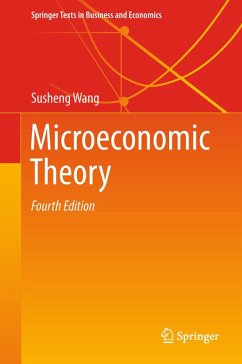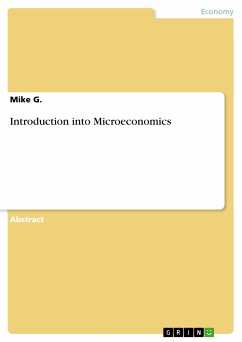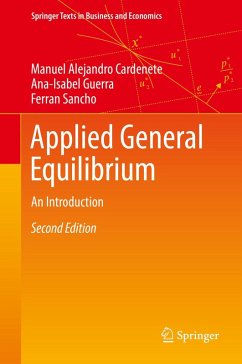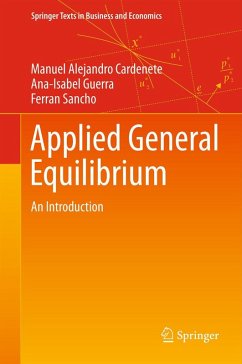
General Equilibrium Foundation of Partial Equilibrium Analysis (eBook, PDF)
Versandkostenfrei!
Sofort per Download lieferbar
80,95 €
inkl. MwSt.
Weitere Ausgaben:

PAYBACK Punkte
40 °P sammeln!
This book addresses the gaps in undergraduate teaching of partial equilibrium analysis, providing a general equilibrium viewpoint to illustrate the assumptions underlying partial equilibrium welfare analysis. It remains unexplained, at least at the level of general economics teaching, in what sense partial equilibrium analysis is indeed a part of general equilibrium analysis. Partial equilibrium welfare analysis isolates a market for a single commodity from the rest of the economy, presuming that other things remain equal, and measures gains and losses by means of consumer surplus. This is a m...
This book addresses the gaps in undergraduate teaching of partial equilibrium analysis, providing a general equilibrium viewpoint to illustrate the assumptions underlying partial equilibrium welfare analysis. It remains unexplained, at least at the level of general economics teaching, in what sense partial equilibrium analysis is indeed a part of general equilibrium analysis. Partial equilibrium welfare analysis isolates a market for a single commodity from the rest of the economy, presuming that other things remain equal, and measures gains and losses by means of consumer surplus. This is a money metric that is supposed to be summable across individuals, recommending policy that maximizes the social surplus. But what justifies such apparently uni-dimensional practise? Within a general equilibrium framework, the assumption of no income effect is presented as the key condition, and substantive general equilibrium situations in which the condition emerges are presented. The analysis is extended to the case of uncertainty, in which the practice adopts aggregate expected consumer surplus, and scrutinizes when such practice is justified. Finally, the book illustrates partial equilibrium as an institutional artifact, meaning that institutional constraint induces individuals to behave as if they are in partial equilibrium. This volume forms an important contribution to the literature by researching why this disparity persists and the implications for economics education.
Dieser Download kann aus rechtlichen Gründen nur mit Rechnungsadresse in A, B, BG, CY, CZ, D, DK, EW, E, FIN, F, GR, HR, H, IRL, I, LT, L, LR, M, NL, PL, P, R, S, SLO, SK ausgeliefert werden.












